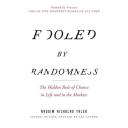John Naisbitt wrote a pretty decent book called “Megatrend” in the early ’80’s. In his late life, he’s trying capture the mindsets that allow him to see the trend and future. The author went into 11 mind sets and 5 projected future states.
Mindsets:
1. Most Things Remain Constant: His caution is to avoid getting carried away with seeing temporary trends as permanent changes.
2. The Future Is Embedded In The Present. You only need to see the “sky” above you. You can’t see the forest for the trees and watch out for the fads that come and go.
3. Focus On The Score Of The Game. Look at the actual measures. Politicians and newsmakers try to bend our perspectives away from what’s happening. The key numbers tell the real story. For example, it was first global cooling and then global warming. What is it? Look at the data. “It’s the nature of human beings to bend information in the direction of desired conclusions.” How true!
4. Understand How Powerful It Is Not To Have To Be Right. Massive failures follow those who blindly follow a doctrine. “But only if I don’t have to be right can I imagine anything, suggesting anything.”
5. See The Future As A Picture Puzzle. Assemble your perspective by seeing how a variety of current trends fit together – not just a straight line. Einstein put together all the pieces (readily proven theories) together to formulate his theory of relativity.
6. Don’t Get So Far Ahead Of The Parade That They Don’t Know You Are In It. Don’t project ahead of what people can appreciate: otherwise, the new perspective adds no value. For example, Charles Darwin waited until the last minute to challenge God and reveal his “Origin of Species” after building up his reputation as a Geologist.
7. Resistance To Change Falls For Benefits. People will change to gain improvements, for example, shooting basketball with one hand. It’s easy to overestimate resistance, in particular, to new technology that requires us to change our habits. I think iPod is a good example, people don’t mind less direct control of the button as long as the MP3 player is elegant enough for you to carry around and don’t make you look geeky.
8. Things That We Expect To Happen Always Happen More Slowly. Remember the forecasts of everyone owning a car-plane in the 1950s? We should be all using them by now. Nestle’s Nespresso machine was used as an example. It was founded in 1986 and has just started to catch on. I don’t know if this is a good example, because I had not heard of Nespresso and I don’t think I would buy one.
9. You Don’t Get Results By Solving Problems, but by exploiting opportunities. The examples are Fedex’s Fred Smith and Dreyers Ice Cream’s T. Gary Rogers. I’m not sure you don’t get results by solving problems. Some of the best opportunities in existing problems. I think what the author was trying to say that one must think outside of the box.
10. Don’t Add Unless You Subtract. This is a practice similar to a professional sports team. The roster of team is usually fixed at a number. I like this mindset the best among all. In today’s ever-increasing complex work and family life, pruning things can add greatly to the quality of the output or life.
11. Consider The Ecology Of Technology. Evaluate technology in terms of the nontechnical constraints. The author suggested we put more “poets” than computer in our school. He’s arguing for more balance between arts and technology. “Technology is a great enabler, but only when in balance with needs and skills and our human nature… When a new technology is introduced, make it a rule to ask: What will be enhanced? What will be diminished? What will be replaced? What new opportunities does it present?”
In Part II, the author proceeded to frame the pictures of the future:
1. Videos, attractive designs, use of color, and visual imagery are replacing the written word as a key influence. For example, the slow death of newspaper is a convincing point.
2. From nation-states to economic domains. Industries are organizing globally for supply, distribution, and production rather than by nation.
3. China’s economic growth will continue, to be followed by political freedom. The nation will become a global design and branding base, rather than just a source of low-cost production labor.
4. Europe will experience slow growth (mutually assured decline), burdened with below-replacement birth rates, tough policies against immigration, and high social welfare costs.
5. The importance of new technologies will slow down while the application of technologies developed in recent years will accelerate. Although he doesn’t directly say it, biotechnology and nanotechnology are immensely slow methods of invention.
Overall, the abridged audio book was a easy listen, perhaps too easy that I had to borrow the book and catch up with some of this points. The mindsets generally make sense but not extraordinary. I guess it doesn’t take a genius to figure the future out. I also agree with the future states he painted. On the other hand, I was hoping for some controversial future states…


